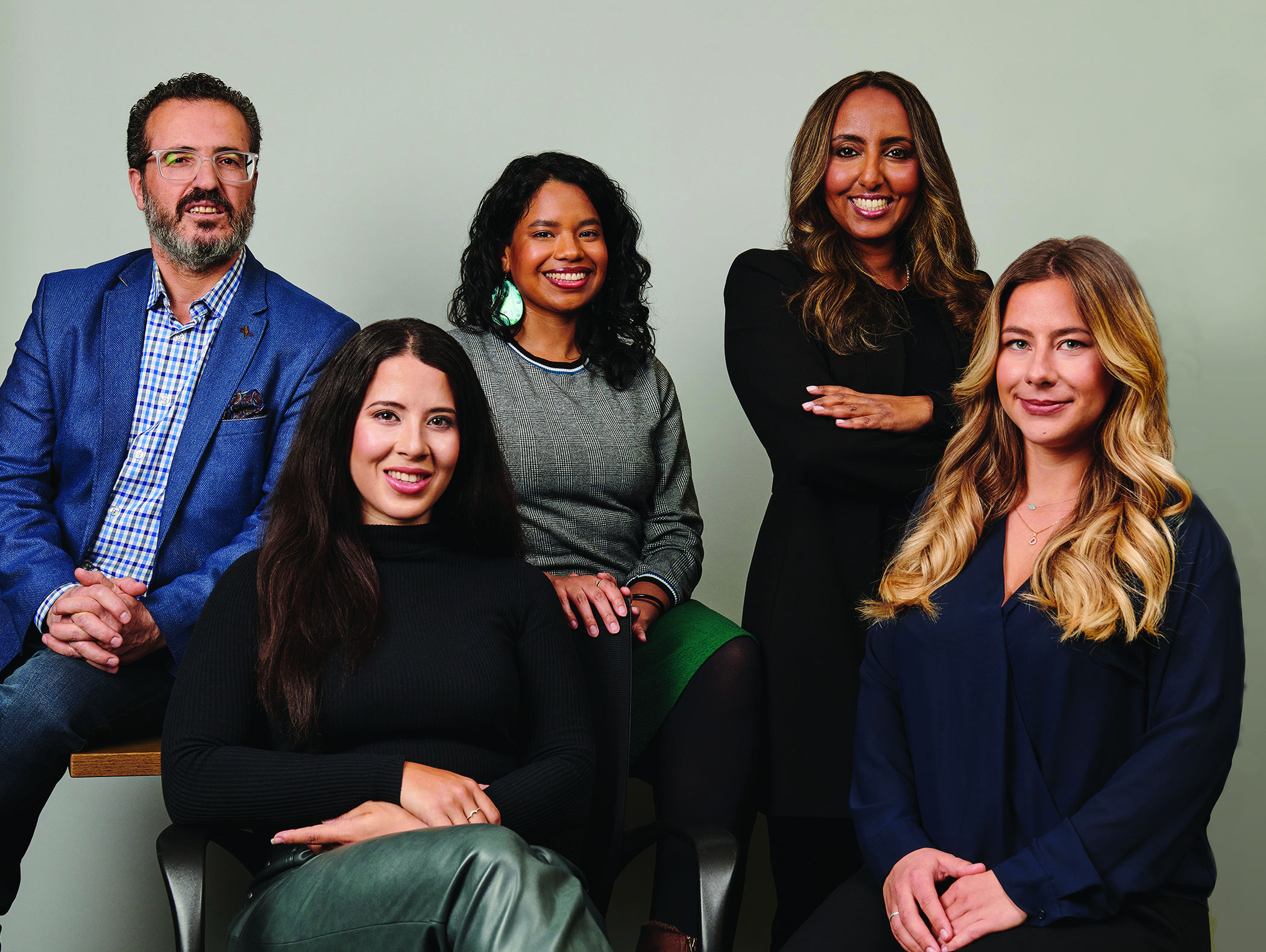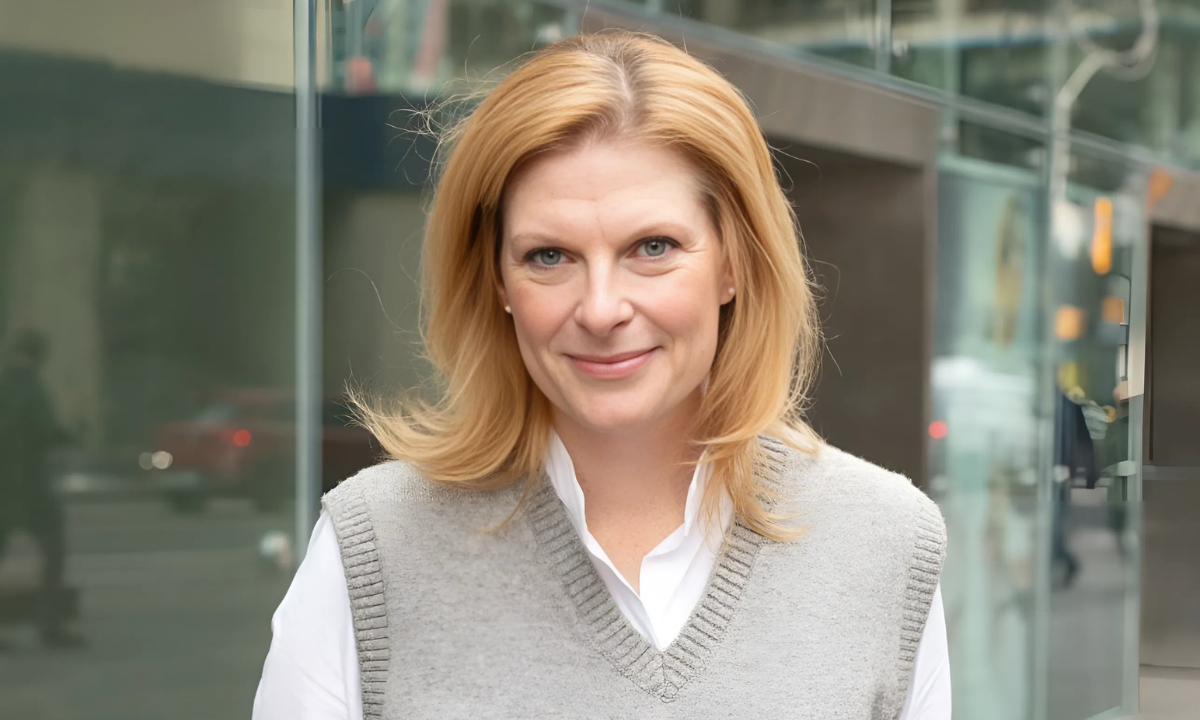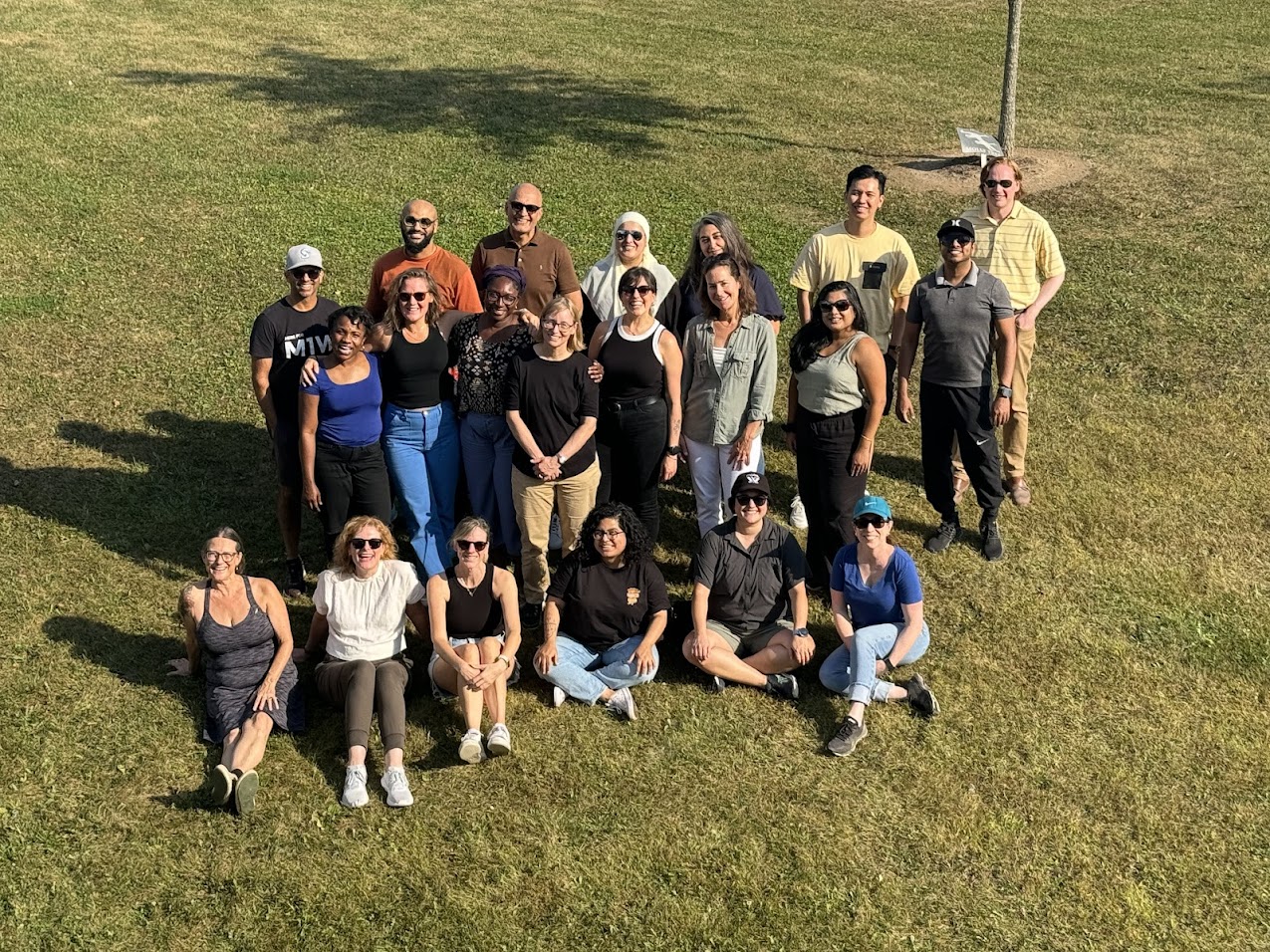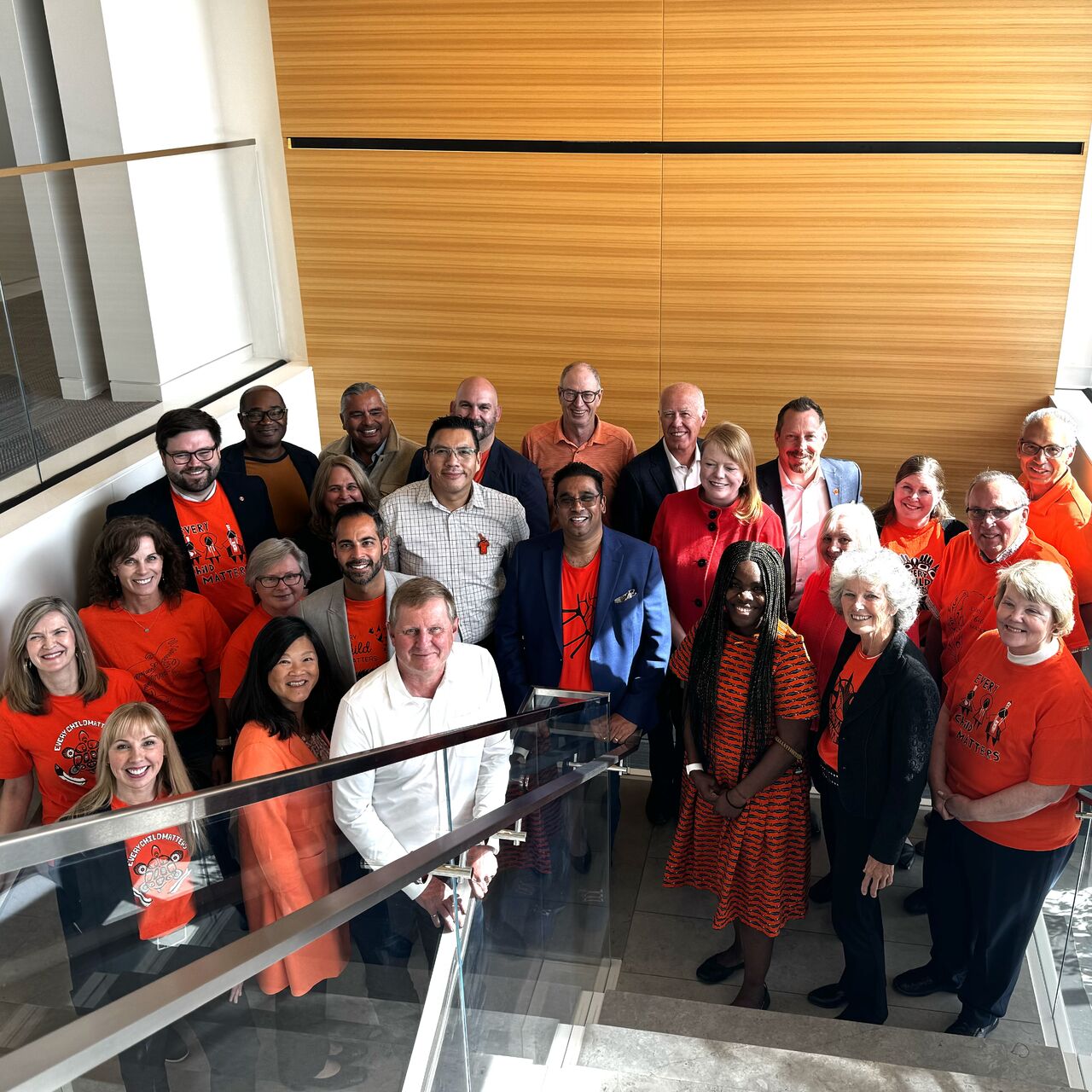Canada’s Top 50 Equitable Funders ranking released; Toronto, Laidlaw and Calgary Foundations take top 3 spots
Why It Matters
Canada’s philanthropic foundations have considerable influence, but few stakeholders are willing to hold their feet to the fire. A new ranking project aims to fill that gap, sorting the country’s largest grantmakers into equity leaders and laggards.

The community foundation of Canada’s most populous city has been crowned the country’s most equitable funder, according to a new ranking project by Future of Good.
“I’m gobsmacked,” said Sharon Avery, Toronto Foundation’s CEO. “We did not expect to be near the top. It’s wonderful.”
The ranking, called the Top 50 Equitable Funders and released today, assessed the country’s 500 largest grantmakers based on seven categories, including foundations’ demonstrated action on diversity, equity, and inclusion (DEI), transparency and funding practices.
In the ranking, the Toronto Foundation, a community foundation with about $760 million in assets, narrowly bested the Laidlaw Foundation, a Toronto-based family foundation, and the Calgary Foundation, one of Canada’s largest community foundations.
The top-ranked corporate foundation was the Vancity Community Foundation, which came in sixth.
The motivation for the ranking was to celebrate the work of philanthropic equity leaders and to inspire action among the rest, said Vinod Rajasekaran, Future of Good’s CEO.
“Imagine if Canada’s 500 largest funders were as equitable in their investing and grantmaking as the Top 50,” he said.
In the research and analysis, the Toronto Foundation scored highly for its grantmaking practices, including its use of unrestricted giving.
Rather than nitpicking how grantees use the money, we trust them to know best how to help their communities, said Avery.

The foundation also got top marks for its commitment to socially responsible investing.
While many foundations traditionally invest their endowments in order to maximize financial returns, the Toronto Foundation has prioritized investing in companies that pursue both profit and a social or environmental mission.
As of 2023, 31 per cent of the Foundation’s assets were invested in a socially responsible way, and by 2030, Avery said they aim to reach 70 per cent.
Avoiding an equity ‘fad’
To produce the ranking, Future of Good and social research firm QuakeLab analyzed data from Canada’s 500 largest foundations by asset size, a group that collectively holds more than $85 billion in assets.
Institutions that primarily raise funds for one charity, such as hospital foundations, were excluded from the analysis. Foundations without a website were also dropped in the first review round.
Researchers then used publicly available information to screen the resulting foundations against about 70 metrics.
In the analysis, foundations got points for metrics such as making a public DEI statement, offering grant funding for more than one year, and publicly stating the origin story of the foundation’s wealth.
They also ascended the ranks if they acknowledged Canada’s colonial history and accepted grant applications in languages beyond English and French.

Rebecca Darwent, a philanthropy consultant, said the ranking provided a valuable baseline for understanding the practices of Canada’s largest grantmakers.
“In the philanthropic sector, where we put our money and our investments matters,” she said.
“If we want to centre equity in a meaningful way, we have to understand where our starting point is.”
Darwent said the project is also timely, spurring foundations to continue to focus on their equity practices now that the limelight has shifted from DEI.
“It would be a missed opportunity if we see this conversation lose traction or become a fad,” she said.
Laidlaw gets high marks for diversity
The top family foundation in the ranking, the Laidlaw Foundation got top marks for its inclusive grant application process, including its willingness to accept verbal grant applications and standard written submissions.
The practice ensures the foundation’s funds are accessible to the people it aims to support—Indigenous and Black youth among them, said Jehad Aliweiwi, the foundation’s executive director.
Laidlaw also received a top score for the racial diversity of its executive team.
Even among members of the Top 50 list, about 40 per cent do not have executive team staff who are representative of the communities the foundation serves, according to rankings research.
Not so at Laidlaw. “Every staff is representative of the communities we want to work with,” said Aliweiwi.
The foundation’s commitment to equity goes back many years, said the executive director.
Laidlaw also received a high score for the racial diversity of its executive team.
“Every staff is representative of the communities we want to work with,” said Aliweiwi.
Even among members of the Top 50 list, this is relatively rare, according to the research.
More than 50 years ago, the Laidlaw family decided the foundation should be guided by the public interest rather than solely the family’s priorities. In step, the family reduced the number of seats they held on the board to less than half.
Today, just three members of the 12-member board are Laidlaw family member representatives.
This change has created space for the community’s priorities to lead the foundation, said Aliweiwi.
Western leadership
Third-place Calgary Foundation, the top-ranked organization outside of Toronto, scored highly for demonstrating commitment to DEI, including through its racial equity action plan.
Foundation CEO Eva Friesen said the 2015 Truth and Reconciliation Commission report was the catalyst for several of the foundation’s equity-focused practices.
While none of the 94 calls to action were focused on foundations, Friesen’s staff and board believed there was more they should do, she said.
To that end, the foundation convened a circle of Indigenous advisors, who recommended hiring an executive staff member responsible for reconciliation.
Two years later, the foundation hired Tim Fox, who now serves as the foundation’s Vice President of Indigenous Relations and Equity.
“His job description was to help us see things differently, know things differently, and then, as a result, we would behave differently,” said Friesen.
In addition to its public racial equity statement, the foundation also scored points in the ranking for acknowledging Canada’s colonial history and publicly listing the origins of the foundation’s wealth, among several other practices.

Ranking highlights laggards
Yet in addition to crowning the country’s equity leaders, the report’s conspicuous absences also suggested some of its laggards.
Not included in the Top 50 list are some of the country’s wealthiest foundations, including the Azrieli Foundation ($2.4 billion in assets), the Jewish Community Foundation of Montreal ($2 billion in assets) and the Charitable Gift Funds Canada Foundation ($1.8 billion in assets).
Absent from the list are the family foundations of some of Canada’s best-known entrepreneurs, including the Ivey Foundation, Molson Foundation and Wilson 5 Foundation, the foundation of Lululemon founder Chip Wilson and his wife Summer Wilson.
None of the foundations asked for comment responded.
To develop the methodology, the research team reviewed literature about equitable funding practices and social justice giving, and the indicators used by a similar UK-based foundation rating initiative. The team also solicited input from an advisory committee, according to a project fact sheet.
Across all indicators, the ranking places a high importance on transparency.
“Opaqueness, intentional or not, can create distrust in relationships and in practice,” said Rajasekaran.
“With the funder-fundee relationship already asymmetrical, transparency plays a significant role in enabling systemic change.”
A ‘call to action’
Darwent said that for both foundations in the Top 50 and outside of it, the most important thing now is taking action.
“It’s not about whose at the top or bottom of the list,” she said.
“I really see this data as a call to action for us all.”
